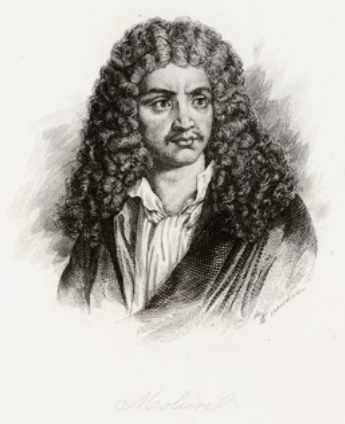NOTE:
The project is currently under construction.
The provided code is incomplete
Molière is an extension of Gherkin which generates the ScreenPlay Design Pattern (SPDP).
The idea rose from Micha Kutz' talk on "Writing tests like Shakespeare" (hence the name of this project)
The aim is to extend Gherkin grammar with some extra info to generate class stubs compliant with SPDP
Language definition proposed by Molière:
GIVEN <Actor> who can <Ability> [and <Ability>]+
WHEN {<Actor> does <Task> {at|with|in} <Parameters>}
[and <Task> {at|with|in} <Parameters>}]+
THEN <Actor> checks <Question> is <Assertion> THANKS TO <element> FOUND ON <screen>
[and <Question> is <Assertion> THANKS TO <element> FOUND ON <screen>]+
This preformatted text includes items (between <>) that will generate SPDP classes with links between them along with methods found from this grammar See tests/test_generate_screenplay.py
This grammar is still compatible with Gherkin to let people transition from Gherkin to Molière.
SPDP is a SOLID compatible architecture (use a PlantUML viewer ):
@startuml
ScreenPlay "0" o-- "n" Actor
ScreenPlay "0" o-- "n" Fact
ScreenPlay "0" o-- "n" Question
ScreenPlay "0" o-- "n" Element
ScreenPlay "0" o-- "n" Task
ScreenPlay "0" o-- "n" Action
ScreenPlay "0" o-- "n" Screen
Actor "0" o-- "n" Ability : has
Actor "0" o-- "n" Task : performs
Actor "0" o-- "n" Question : asks
Actor "0" o-- "n" Fact : learns/remembers
Fact "0" o-- "n" Question : enable
Question "0" o-- "n" Element : about the state of
Element "0" o-- "n" Screen : on a
Task "0" o-- "n" Action : made up of
Ability "0" o-- "n" Action : enables
Action "0" o-- "n" Element : interacts with
class ScreenPlay{
screens: Screen[]
actors: Actor[]
actions: Action[]
tasks: Task[]
elements: Element[]
abilities: Ability[]
facts: Fact[]
questions: Question[]
test_scripts: str[] * see hereunder
play_test_script()
}
class Actor{
tasks: Task[]
abilities: Ability[]
facts: Fact[]
questions: Question[]
}
class Fact{
questions: Question[]
}
class Ability{
actions: Action[]
}
class Task{
actions: Action[]
}
class Action{
elements: Element[]
}
class Question{
elements: Element[]
}
class Element{
on_the_screen: Screen
}
class Screen{
elements: Element[]
}
@enduml
(*) ScreenPlay.test_scripts: each test_script is a scenario that would look like a Molière scenario
#todo: update readme with full example from an SPDP scenario to the generated scenario + test output
Example:
From a Molière scenario (the extended GIVEN/WHEN/THEN )
generated from an SPDP scenario with moliere_core_domain.play_test_script("act 1", scenario)
def main():
test_script = """
Act 1 - scene 1 - "John" does "sequence #1"
# SCENE SETUP
an_actor.name = "John"
element_1.can_be_found_on(page_1)
element_2.can_be_found_on(page_1)
element_3.can_be_found_on(page_2)
element_4.can_be_found_on(page_1)
element_5.can_be_found_on(the_mailbox)
action_1.add_interaction(element_1)
action_2.add_interaction(element_3)
a_task.set_sequence([{"task": "sequence #1",
"actions": [{"sequence": 1, "action": action_1, "param": 123},
{"sequence": 2, "action": action_2, "param": click}])
# SCENE PLAY
an_actor.accomplishes(a_task)
Act 1 - scene 2 - "a Tester" does "sequence #2"
# SCENE SETUP
another_actor.name = "a Tester"
action_3.add_interaction(element_4)
action_4.add_feedback(element_5)
checks_1 = [{"task": "sequence of checks #2",
"actions": [{"action": action_3, "sequence": 1, "param": 456},
{"check": action_4, "sequence": 2}]
# SCENE PLAY
a_test.set_actions(checks_1)
feedback = another_actor.accomplishes(checks_1)
print(feedback)
"""
my_comedy = ScreenPlay("Much ado about nothing")
output = my_comedy.play_test_script("act 1", test_script)
print(output)
output:
John does the sequence #1
-> <action_1.name> with 123 on element_1 in page 1
-> and <action_2.name> with a click on element_3 in page 2
Then a Tester does the sequence of checks #2
-> <action_3.name> with 456
<- and sees 32 EUR from element_5 in the_mailbox
As per "doc as a test" and "Documentation Testing", the output can simply be compared with previous outputs to check regression. See doctest as a possible library.
- ideate SPDP gherkin-like scenarios
- digest the scenario to generate SPDP classes & tests
- implement the elements to interact with the screens
- complete with some logic to implement business process by using elements
- run the tests
- works python 3.9
- run
pip install -r requirements.txt
See PyCharm configurations :
